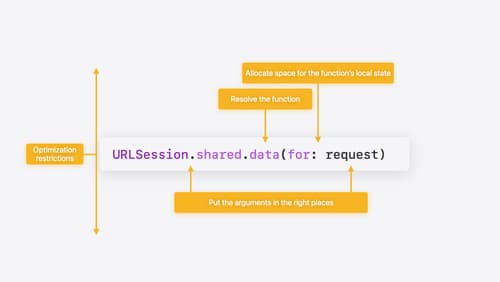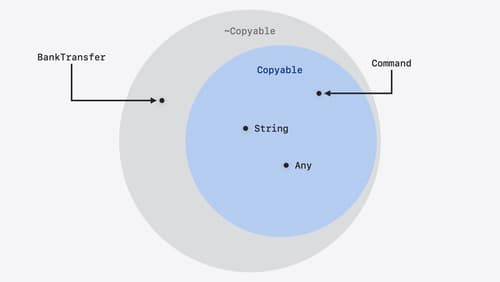class is faster than struct
Asked on 2024-08-23
1 search
In Swift, the performance characteristics of classes and structs differ due to their storage and copying semantics. Classes use out-of-line storage and have reference semantics, meaning that copying a class value involves copying the ownership of the reference, which retains the object it refers to. This can be more efficient for larger types, as it avoids the cost of copying all stored properties.
On the other hand, structs use inline storage and have value semantics, meaning that copying a struct involves recursively copying all of its stored properties. This can be beneficial for small types, as it avoids heap allocation, but for larger types, the cost of copying can become a significant performance drag if many copies are made.
There is no definitive rule that classes are faster than structs or vice versa; it depends on the specific use case and the size of the data being handled. For more detailed insights, you can refer to the session Explore Swift performance at the "Value copying" chapter.

Explore Swift performance
Discover how Swift balances abstraction and performance. Learn what elements of performance to consider and how the Swift optimizer affects them. Explore the different features of Swift and how they’re implemented to further understand the tradeoffs available that can impact performance.

Consume noncopyable types in Swift
Get started with noncopyable types in Swift. Discover what copying means in Swift, when you might want to use a noncopyable type, and how value ownership lets you state your intentions clearly.

A Swift Tour: Explore Swift’s features and design
Learn the essential features and design philosophy of the Swift programming language. We’ll explore how to model data, handle errors, use protocols, write concurrent code, and more while building up a Swift package that has a library, an HTTP server, and a command line client. Whether you’re just beginning your Swift journey or have been with us from the start, this talk will help you get the most out of the language.
